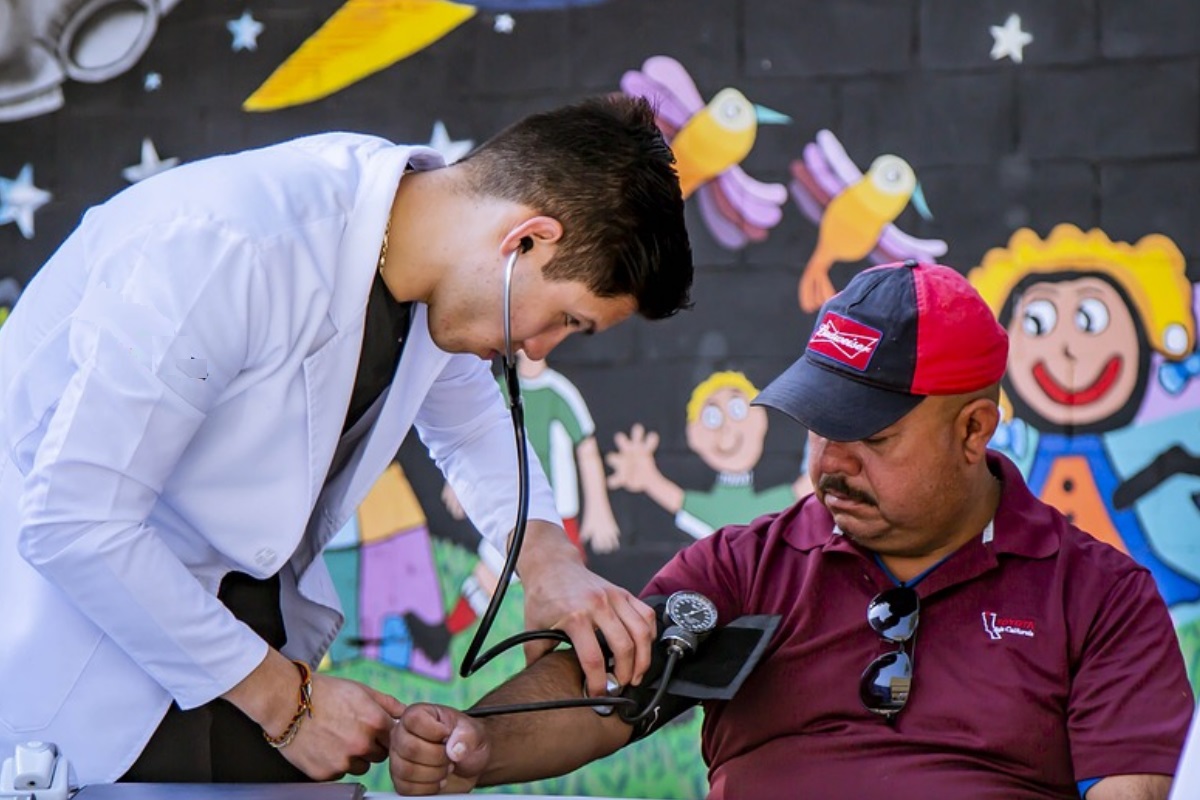What’s Wrong with Healthcare V: Fear

As a youngster, I was afraid of the “closet-monster.” That formidable creature of childhood imagination lurking in the dark back of the closet who, if not for a brave parent coming into the room and turning on the light, might have snuck out during the night to do dastardly things.
This closet-monster, or simply, fear of the unknown, is one of the greatest frailties of humans – of all ages. It paralyzes and encumbers us, prevents us from seeking out options for our lives and, ultimately, following our own life’s plan based on what is sacred to us.
Put another way, this fear really stems from our desire for certainty. Its actual genesis is the conflictual relationship between this desire for certainty and the inherent nature of life. What we fear is not the unknown, but rather ambiguity. Life is fundamentally ambiguous. The only absolute certainty is that it will end someday when we die. Ironically, wanting and trying to control the day-to-day experience of being alive is paradoxical to living life.
Fearing Death and Avoiding Truth
In the practice of medicine this absolute certainty is rarely acknowledged and even less so accepted. Medical professionals emphatically tout clinical paths while describing their outcomes as “unknown,” for fear of being perceived as “stealing hope” from a “patient who is not ready to hear the truth.” This excuses us from fulfilling our fiduciary responsibilities as physicians, and in truth, are a false manipulation of the clinical narrative. As such, medicine ends up doing things “to” people rather than “for” and “with” them.
Taking off our long, white coats, most physicians can readily admit that widely metastatic cancer, significant heart, kidney, liver (name your organ of choice!) failure, and many other very serious illnesses, are terminal – they will lead to death. Many diseases are progressive, irreversible and fatal processes but are rarely spoken of in these terms as physicians aren’t trained to view them as such.
More interesting however, is outside of such serious disease process, the inevitability of life is hardly ever seen, even when it is staring us in the face.
I fondly remember caring for a 105-year-old woman who presented to the hospital ED with shortness of breath, fatigue and an irregular heart rhythm. A cardiology colleague recommended a cardiac catheterization, possible pacemaker implantation and various pharmacologic interventions. She was dying. She was dying from being old, not because there was anything wrong with her or anything that could be fixed. Her heart – her whole body - was physiologically worn out. They were unable to see the reality, the inevitability, the absolute certainty of life right in front of them.

Seeing and Sharing Truth in the Inflection Period
So why is this? Why can’t we, the ones entrusted to care for you, see the truth of life? While the course and end result of many diseases is known, why are we unable to see it? Or, if we do, why can’t we share this truth with our patients?
The answer, simply, is that medical education and the system of healthcare fail to acknowledge this absolute truth. The clinical acumen required to recognize when someone, regardless of age, has come to the proverbial “turning of the corner” of life is very rare. No blood test or CT scan identifies this period. Rarer is a vernacular that can be used to describe this period and discuss it with people or colleagues even if one were insightful enough to consider its existence and relevance. As such, we are trained, and we practice, in a realm absent of any real understanding, discussion or acknowledgement of the natural physiologic processes of life.
Furthermore, the healthcare system lacks care options outside of its linear algorithmic approach of doing things to people based on the recognition of the what is happening – disease and debility – rather than the why it is happening.
The reality of life however, is that for all of us, there is a moment in our health journey when our bodies will no longer have the capacity to recover or restore. I call this the “Inflection Period.” Not only will our bodies begin to fail, they will eventually cease having any capacity to heal, recover, restore or respond positively to interventions.
The Inflection Period is the time when the focus of health care efforts by medical professionals should change to reflect its reality. But again, in contemporary medical practice, this does not happen. The system is designed to continue to provide “curable” strategies when cure is not possible, and disease mitigating strategies carry more burden than benefit. Such clinical interventions act as harmful stressors that can dramatically accelerate a patient’s decline.
This over-utilization of resources and interventions that have little chance of achieving good outcomes increases the cost of care. More importantly, such “care” is often contrary to patients’ values and wishes had they known the absolute truth of their condition, and can introduce preventable suffering and even death itself.
I urge us to seek new ways of thinking and practicing medicine which elevate what is possible in healthcare and beyond. Deepening our understanding of life, as opposed to fearing death or thinking of it as the ultimate clinical failure, we transcend medicine and come closer to what it means to be a true caregiver in the modern age.
In my next segment, I will offer more on the Inflection Period. I will explore understanding and how to recognize its existence, talking about it with patients and others, and opportunities to break from the linear algorithmic model of healthcare so we can offer care appropriate to what is sacred to the individual based on the truth.
If you found this information helpful, please share it with your network and community.
Copyright © 2018 Crossroads Hospice. All rights reserved.
Dr. Timothy Ihrig, Chief Medical Officer of Crossroads Hospice & Palliative Care, is an internationally recognized authority on hospice and palliative care and advocate for full transparency in patient care. His TED Talk, “What We Can Do to Die Well,” urges doctors to emphasize overall quality of life while helping seriously ill patients approach end-of-life with dignity and compassion. Dr. Ihrig received his Doctor of Medicine and M.A. in Molecular Biology at the University of Nebraska, completed a residency in Internal Medicine at the University of Iowa, Des Moines, and Palliative Medicine and Hospice training at Stanford University. He is endorsed by the Center to Advance Palliative Care as a clinician-educator.
Recommended Reading:
What’s Wrong with Healthcare? It Doesn’t Care (Part I).
What’s Wrong with Healthcare? It doesn’t Care (Part II)
What’s Wrong with Healthcare III: The Value of Life
What’s Wrong with Healthcare IV: The Cost of Healthcare




